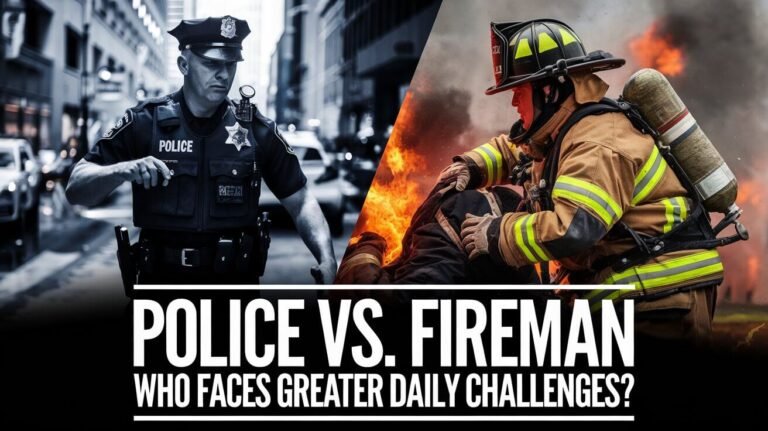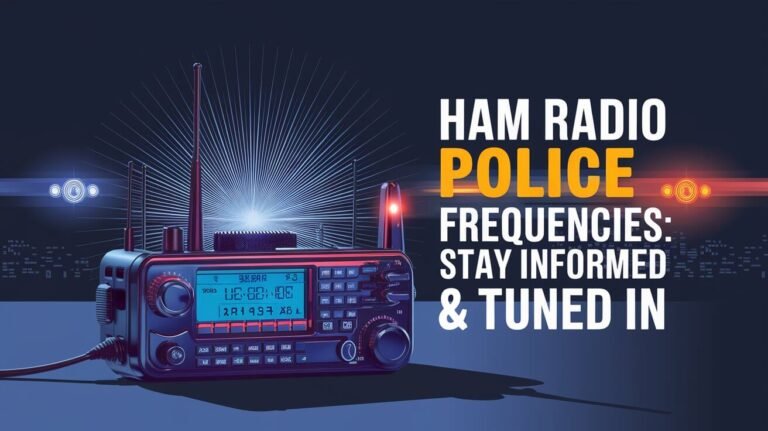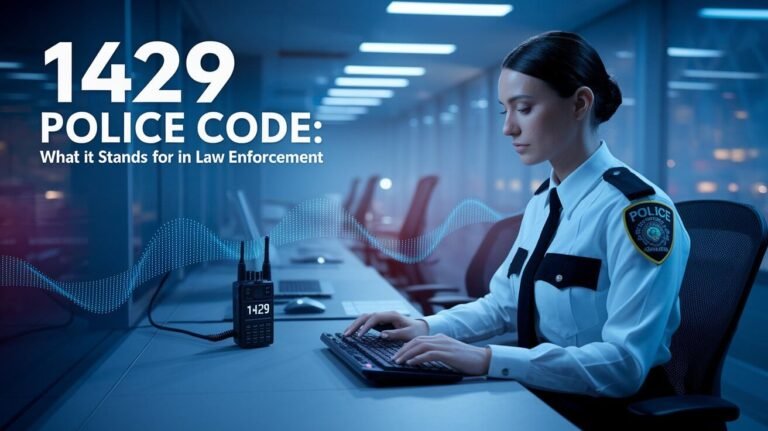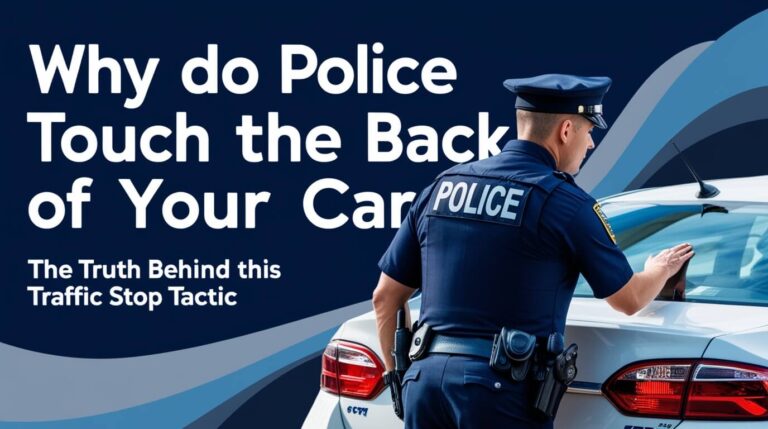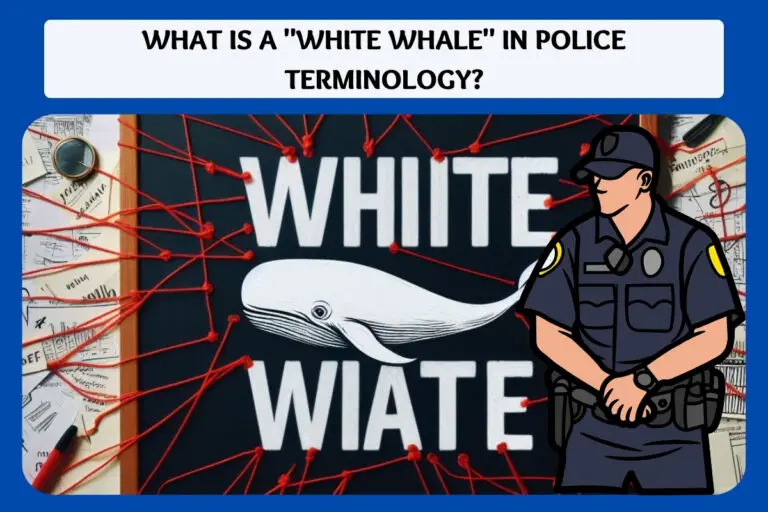Peace Officer vs Police Officer: Key Differences Explained
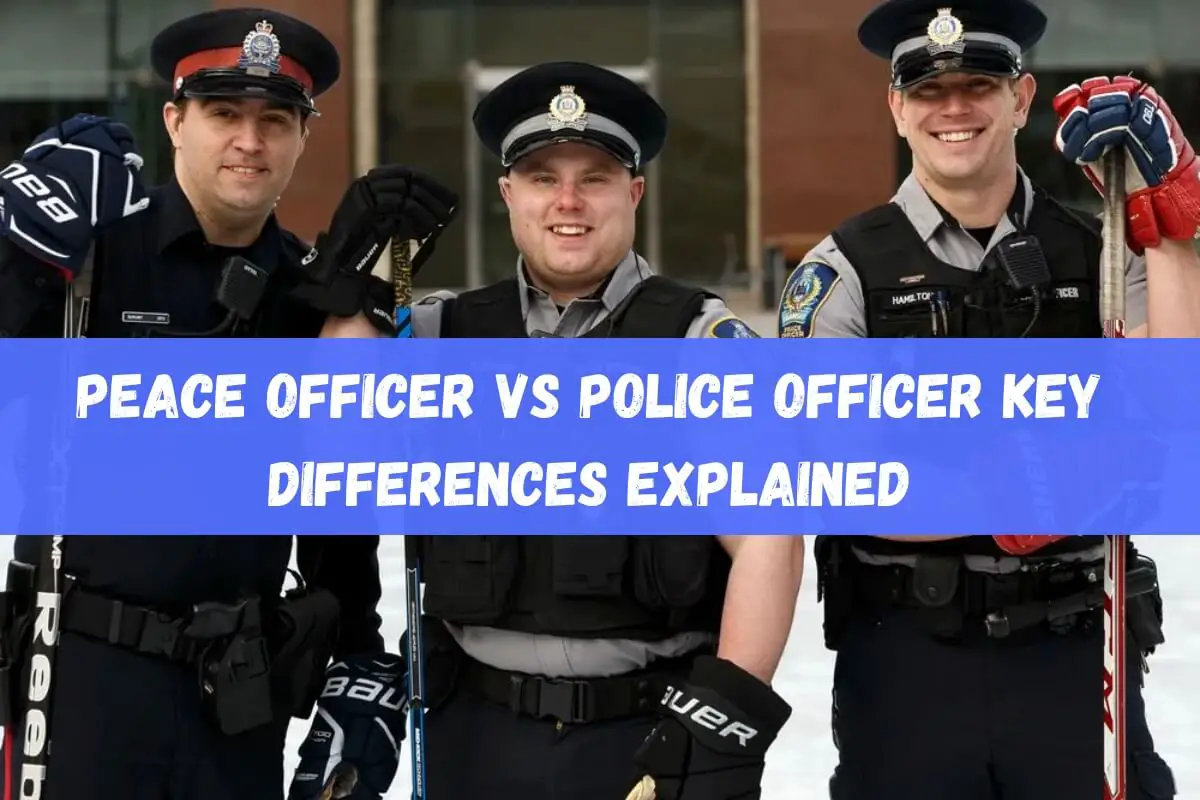
In law enforcement, maintaining public safety and upholding the law are paramount responsibilities. However, “peace officer” and “police officer” are often used interchangeably, leading to confusion about their distinct roles and jurisdictions. While both are sworn law enforcement officials, there are crucial differences between a peace officer and a police officer that are important to understand.
So, what’s the difference between a peace officer and a police officer?
The primary distinction lies in the scope of their authority and the agencies they serve. A police department or force specifically employs a police officer, while a peace officer is a broader term encompassing various law enforcement roles across different agencies at the local, state, and federal levels.
This guide explains the key differences between peace officers and police officers. It covers their duties, training needs, possible career paths, and how they ensure public safety and enforce laws. Whether you want a law enforcement job or are just curious, this article provides useful information.
What is a Peace Officer?
A peace officer is a sworn law enforcement official with the authority to enforce laws, make arrests, and carry firearms. The term “peace officer” is an umbrella term that encompasses various law enforcement roles, including but not limited to:
- Sheriff’s deputies
- State troopers
- Federal agents (FBI, DEA, ATF, U.S. Marshals)
- Game wardens
- Campus police officers
- Correctional officers
Peace officers can be employed by various agencies at different levels of government, each with specific jurisdictions and responsibilities. For example, state troopers primarily enforce state laws on highways and state-owned properties, while federal agents investigate federal crimes and ensure national security.
The duties and responsibilities of peace officers can vary depending on their specific role and the agency they serve. Generally, they are tasked with:
- Enforcing laws and ordinances
- Investigating crimes and gathering evidence
- Making arrests and apprehending suspects
- Providing security and protecting property
- Responding to emergencies
What is a Police Officer?
A police officer, on the other hand, is a sworn law enforcement official employed specifically by a police department or force, typically at the local or municipal level. Police officers are responsible for maintaining law and order within their designated jurisdiction, which can include cities, towns, or counties.
The primary roles and responsibilities of police officers include:
- Patrolling assigned areas and responding to emergency calls
- Enforcing local and state laws
- Investigating crimes and collecting evidence
- Apprehending and arresting suspects
- Assisting in emergencies (e.g., fires, accidents, natural disasters)
- Promoting community safety and engagement
Police officers can specialize in various roles, such as patrol officers, detectives, traffic officers, community liaison officers, and more, depending on their department’s structure and needs.
The Main Difference: Scope of Authority
While both peace officers and police officers are sworn law enforcement officials, the primary difference lies in their scope of authority and the agencies they serve.
Peace officers have a broader scope of authority, as they can be employed by various agencies at the local, state, and federal levels. Their jurisdiction and responsibilities are often specific to the agency they work for, such as enforcing state laws (state troopers), investigating federal crimes (federal agents), or providing security on college campuses (campus police officers).
On the other hand, police officers are employed by a specific police department or force, typically at the local or municipal level. Their jurisdiction is generally limited to the city, town, or county they serve, and their primary focus is on enforcing local and state laws within that jurisdiction.
All police officers are peace officers, with the authority to enforce laws and make arrests. However, not all peace officers are police officers, as they have different scopes and jurisdictions.
Educational and Training Requirements
Both peace officers and police officers undergo extensive training and education to prepare them for their respective roles. However, the specific requirements can vary depending on the agency, location, and position.
Police Officer Training and Education
To become a police officer, individuals typically need to meet the following requirements:
- High School Diploma or GED: A minimum of a high school diploma or equivalent is usually required.
- Police Academy Training: Aspiring police officers must complete a police academy program, which includes classroom instruction and hands-on training in areas such as criminal law, investigations, firearms handling, defensive tactics, and emergency vehicle operations.
- Certifications and Licenses: Depending on the state or jurisdiction, police officers may need to obtain certifications or licenses, such as a Peace Officer Standards and Training (POST) certification.
- Continuing Education: Police officers are often required to participate in ongoing training and professional development to maintain their certifications and stay up-to-date with new laws, procedures, and best practices.
Peace Officer Training and Education
The training and education requirements for peace officers can vary based on their specific role and the agency they work for. In general, peace officers may need to meet the following requirements:
- Education: Some agencies may require a college degree, while others may accept a high school diploma or equivalent.
- Agency-Specific Training: Peace officers undergo specialized training programs provided by their respective agencies, covering areas such as law enforcement procedures, investigative techniques, firearms handling, and agency-specific protocols.
- Certifications and Licenses: Depending on their role and jurisdiction, peace officers may need to obtain certifications or licenses specific to their duties, such as a Peace Officer Standards and Training (POST) certification or a federal law enforcement certification.
- Continuing Education: Similar to police officers, peace officers are often required to participate in ongoing training and professional development to maintain their certifications and stay up-to-date with new laws, procedures, and best practices relevant to their specific roles.
Training and education requirements for peace officers vary by agency and position. Some agencies have stricter requirements, especially for specialized or higher-level roles.
Essential Skills for Peace Officers and Police Officers
The roles and jurisdictions of peace officers and police officers may differ, but certain essential skills are crucial for both, including:
- Integrity and Ethical Decision-Making: Law enforcement professionals must uphold the highest standards of integrity and make ethical decisions, even in high-pressure situations.
- Knowledge of Laws and Procedures: A thorough understanding of relevant laws, regulations, and procedures is essential for enforcing the law and conducting investigations effectively.
- Physical Fitness and Defensive Tactics: Both peace officers and police officers must maintain a certain level of physical fitness and be trained in defensive tactics to ensure their safety and the safety of others.
- Communication and Interpersonal Skills: Effective communication, active listening, and strong interpersonal skills are crucial for interacting with the public, diffusing tense situations, and building trust within the community.
- Problem-solving and Critical Thinking: Law enforcement professionals must be able to analyze complex situations, gather and evaluate evidence, and make sound decisions under pressure.
- Attention to Detail: Attention to detail is crucial for accurate report writing, evidence collection, and ensuring that procedures are followed correctly.
Peace officers and police officers need certain skills, but some roles or agencies require unique skills or specializations, such as federal agents needing expertise in counterterrorism or game wardens needing knowledge of environmental laws.
Frequently Asked Questions
Do peace officers carry firearms?
Not all peace officers are authorized to carry firearms. The ability to carry a firearm depends on the specific duties and responsibilities of the peace officer’s role, as well as the policies and regulations of the employing agency. Some peace officers, such as campus police officers or security guards, may not be authorized to carry firearms, while others, like state troopers or federal agents, are typically armed.
Can peace officers make arrests without a warrant?
The authority to make arrests without a warrant varies depending on the jurisdiction and the specific circumstances. In general, peace officers may be able to make warrantless arrests in certain situations, such as:
- Witnessing a crime in progress
- Responding to a domestic violence incident
- Apprehending a suspect who has an outstanding arrest warrant
- Suspecting that a suspect has committed a felony
However, the specific laws and regulations governing warrantless arrests can vary by state and agency. It is crucial for peace officers to thoroughly understand and follow the applicable laws and procedures in their jurisdiction.
What are the powers of a peace officer vs. a police officer?
The powers of peace officers and police officers can overlap in many areas, such as the authority to enforce laws, make arrests, and carry firearms (if authorized). However, there may be some differences in the specific powers and jurisdictions granted to each role.
Police officers generally have broader powers within their designated jurisdiction, as they are responsible for enforcing local and state laws, maintaining public order, and responding to emergencies. They have the authority to conduct traffic stops, issue citations, and investigate crimes within their jurisdiction.
On the other hand, the powers of peace officers may be more limited or specialized, depending on their specific role and the agency they serve. For example, a game warden may have the authority to enforce hunting and fishing regulations but may not have the same powers as a police officer when it comes to enforcing general criminal laws.
Federal agents, who are also considered peace officers, typically have jurisdiction over federal crimes and may have additional powers related to their specific areas of investigation, such as counterterrorism, drug enforcement, or border security.
The powers and jurisdictions of peace officers and police officers vary based on state and local laws, as well as agency policies and regulations.
Career Paths and Advancement Opportunities
Both peace officers and police officers have opportunities for career growth and advancement within their respective fields. However, the specific career paths and advancement opportunities may differ based on their roles and the agencies they serve.
Career Paths for Police Officers
Police officers often start their careers as patrol officers, responding to calls and maintaining order within their assigned areas. With experience and additional training, they may have the opportunity to specialize in various roles, such as:
- Detective: Detectives investigate complex crimes, gather evidence, and work closely with prosecutors to build cases.
- Traffic Officer: Traffic officers primarily focus on enforcing traffic laws, investigating accidents, and managing traffic flow.
- Community Liaison Officer: These officers work closely with local communities to build relationships, address concerns, and promote crime prevention initiatives.
- Supervisor or Administrator: Experienced officers may advance to supervisory or administrative roles, overseeing other officers and managing department operations.
Police officers may transfer to specialized units like SWAT teams, narcotics divisions, or criminal intelligence units, depending on department needs.
Career Paths for Peace Officers
The career paths for peace officers can vary widely depending on the specific agency and role they serve. For example:
- Federal Agents: Federal agents working for agencies like the FBI, DEA, or ATF may have opportunities to specialize in areas such as counterterrorism, cybercrime, or organized crime investigations, or advance to supervisory or leadership positions within their agencies.
- State Troopers: State troopers may have the opportunity to specialize in areas like commercial vehicle enforcement, criminal investigations, or traffic reconstruction, or advance to supervisory roles within their state police organizations.
- Game Wardens: Game wardens may have the chance to specialize in areas such as wildlife management, environmental crime investigations, or public education and outreach programs.
- Campus Police Officers: Campus police officers may have opportunities to advance to supervisory roles or specialize in areas like crime prevention, emergency management, or community outreach programs within their respective institutions.
Peace officers may transfer or cross-train between agencies or jurisdictions based on their qualifications and the new role’s requirements.
The Importance of Peace Officers and Police Officers
Both peace officers and police officers play crucial roles in maintaining public safety, enforcing laws, and protecting the rights and well-being of citizens. Their work is essential in creating a secure and orderly society, and their contributions should be recognized and valued.
Peace officers and police officers often serve as the first line of defense against criminal activities, responding to emergencies, and ensuring that laws are upheld. They work tirelessly to investigate crimes, apprehend suspects, and gather evidence to support legal proceedings, upholding the principles of justice and accountability.
Moreover, these law enforcement professionals play a vital role in fostering positive relationships with the communities they serve. Through community outreach programs, educational initiatives, and collaborative efforts, they strive to build trust, promote understanding, and address concerns or issues that may arise.
Peace officers and police officers also serve as role models for upholding the highest standards of integrity, ethical behavior, and professionalism. Their commitment to fairness, impartiality, and respect for the rights of all individuals is essential in maintaining the rule of law and preserving the democratic values upon which our society is built.
Peace officers and police officers play crucial roles in creating a safe and just society. Their dedication, courage, and commitment to serving and protecting the public are invaluable.
Conclusion:
While peace officers and police officers share some core responsibilities in enforcing laws and maintaining order, there are distinct differences in their scope of authority and the agencies they serve. Understanding these distinctions is crucial for those interested in pursuing a rewarding career in law enforcement.
Peace officers encompass a broader range of law enforcement roles across various agencies at the local, state, and federal levels, while police officers are specifically employed by police departments or forces, typically at the municipal level.
Both professions require extensive training, education, and a commitment to upholding the highest standards of integrity and ethical conduct. Essential skills such as knowledge of laws and procedures, physical fitness, communication abilities, and problem-solving are paramount for success in these challenging yet noble professions.
Peace officers and police officers ensure public safety, prevent and solve crimes, and build positive community relationships. Their dedication and sacrifice protect citizens’ rights and well-being, contributing to a just and orderly society.

